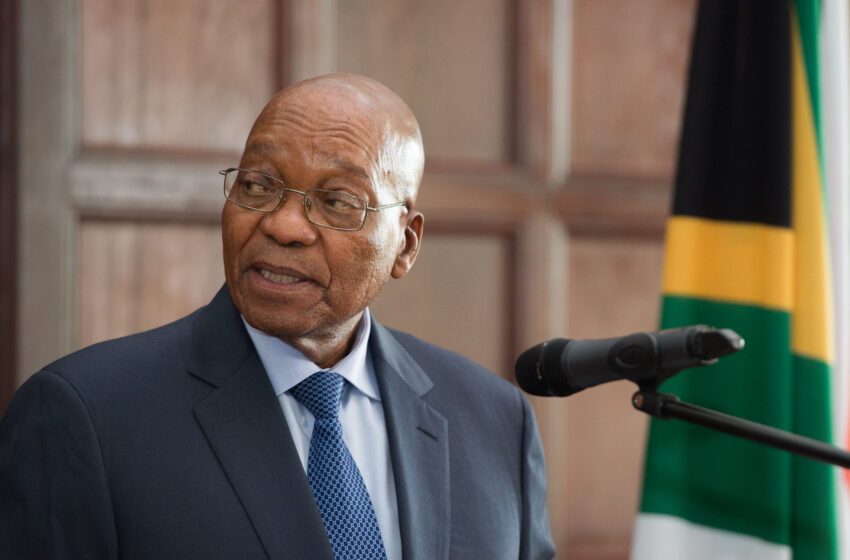Jacob Zuma battles to avoid paying R28 million in legal fees — what really happened?

Former SA President, Jacob Zuma
Former South African President Jacob Zuma is fiercely contesting a legal claim that seeks to recover R28 million plus that was spent on his legal defense. In courts across Pretoria, the showdown pits the Presidency and the State Attorney against Zuma, who insists he should not be held responsible for reimbursing the state.
The Legal Clash: Who Owes What?
The dispute centers on funds previously paid from the public coffers to cover Zuma’s legal expenses. In prior rulings, especially a Supreme Court of Appeal decision, the court found that Zuma was not entitled to taxpayer-funded legal assistance and must repay those costs.
Yet Zuma’s legal team argues otherwise. They maintain that the payments in question were made under unconstitutional decisions by the state, over which he had no control. He claims that forcing him to repay such sums would be inequitable, given the nature of how the payouts were authorized.
The Presidency’s Position: “Too Little, Too Late?”
The government counters Zuma’s arguments with a firm stance: the time to challenge those decisions has passed, and he must fulfill the obligation to repay. The Presidency contends that Zuma cannot now evade accountability by pointing to actions of the State Attorney or previous procedural missteps.
Judgment in the ongoing case is pending. The matter has been reserved by the courts, and all eyes are on the High Court in Pretoria.
How Did We Get Here?
The origin of the dispute dates back to legal fees accrued during Zuma’s defense against corruption allegations tied to the 1999 arms procurement dealings. These funds were channeled to his legal team over an extended period as part of the state-sponsored legal support.
In 2024, the Supreme Court of Appeal ruled that Zuma was ineligible for such state-funded legal support and that the sum must be repaid with interest. The state now aims to reclaim the full amount, potentially through measures including pension garnishment or other enforcement action.
Zuma’s Defense: Victim or Responsible Party?
Zuma’s legal counsel frames the former president as an “innocent recipient” of the funds, saying he should not bear responsibility for payments that were themselves alleged to be unlawful. They argue that the State Attorney and the Presidency must bear the burden because the payments were made under their control.
The defense also points out that the SCA ruling does not explicitly mandate that Zuma himself must repay the funds—only that the state should recover them from whoever is responsible.
Why This Case Matters
This legal conflict carries weight beyond Zuma’s individual liabilities. It touches on fundamental issues of public accountability, constitutional law, and the role of state funds in providing legal support to public officials.
If Zuma is compelled to shoulder the bill, it could set a precedent for future cases involving state-funded legal support for high officials. If he succeeds in avoiding payment, critics say it may weaken the state’s ability to recoup improper expenditures.
What’s Next?
-
The High Court in Pretoria will hear arguments and eventually issue its ruling.
-
Depending on the judgment, Zuma may be ordered to pay, or the court might redirect liability elsewhere.
-
Legal observers speculate the decision will be appealed further, potentially reaching higher courts.
As the courtroom drama unfolds, all attention is on Pretoria. The outcome may reshape how public funds and legal accountability intersect for government officials in South Africa.
Frequently Asked Questions (FAQ)
Q1: Why is Zuma being asked to repay money for legal fees?
Because a court (Supreme Court of Appeal) found that he was not entitled to taxpayer-funded legal defense and that the state should recover those amounts.
Q2: How much is the claim worth?
The claim is over R28 million (sometimes cited as R28.9 million) for legal expenses during his defense in the arms deal case.
Q3: What is Zuma’s defense against the repayment?
He says the payments were made under unconstitutional decisions by the state, and he should not be personally held liable or forced to pay back funds he did not unlawfully acquire.
Q4: Can the state force him to pay?
Yes—if the court rules in favor of the Presidency, they may enforce the debt via pension garnishment or other legal mechanisms.
Q5: When will the verdict be delivered?
The judgment has been reserved; the court has not yet announced a date.

